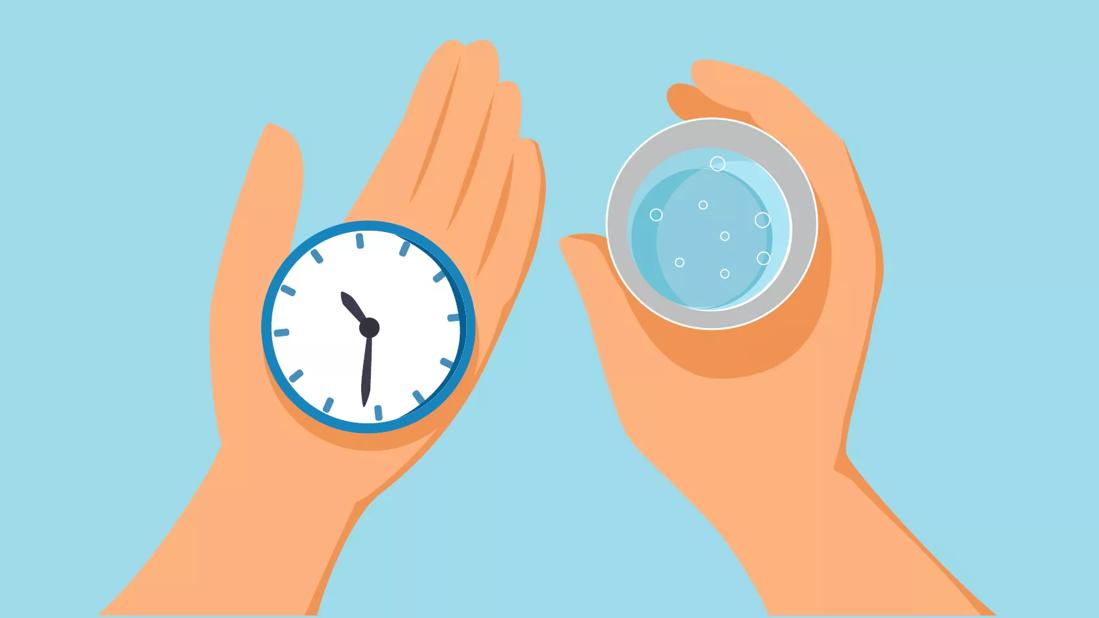A Q&A to prep for your fasting blood test

Image content: This image is available to view online.
View image online (https://assets.clevelandclinic.org/transform/0d4a027f-6619-4cba-9320-d43cfa9bee09/FastingBloodTest-1364759918-770x533-1_jpg)
two hands holding a stopwatch and a cup of water
So, your healthcare provider has asked you to fast before your blood test. Fasting means not eating and drinking for a period of time. You often need to do this before bloodwork. This is because what you eat and drink ends up in your bloodstream and can skew your results.
Advertisement
Cleveland Clinic is a non-profit academic medical center. Advertising on our site helps support our mission. We do not endorse non-Cleveland Clinic products or services. Policy
But can you drink black coffee when fasting for bloodwork? How about taking your medications? Family medicine specialist Timothy Tramontana, MD, MS, answers your frequently asked questions.
A: Typically, you should fast before bloodwork anywhere between 10 and 12 hours. Usually, people choose to do blood tests first thing in the morning. This way, you can fast overnight, when you generally don’t eat anyway.
Blood tests are a quick, effective way for doctors to check your health and to see if certain treatments are working. Blood tests you may need to fast for include:
A: Yes. You can drink as much water as you want, but it should be plain. Avoid lemon-flavored and carbonated waters, as well as teas until after your test.
A: Don’t drink anything but water. Coffee contains caffeine. It’s also a diuretic, which removes water from your body. Many people think coffee counts toward your fluid requirements. However, it makes you urinate more, which can affect some of your lab results. So, get your blood test done, then get your cup of coffee!
Advertisement
A: You can take over-the-counter and prescription medications unless your doctor advises you otherwise. On that note, it’s definitely a good idea to tell your doctor about all medications and supplements you’re taking to avoid something potentially skewing lab results.
There’s no indication that daily medications — such as blood thinners and blood pressure meds — will cause any problems with fasting bloodwork, so definitely continue taking them unless told otherwise. And if you have a headache, taking an ibuprofen or another over-the-counter pain reliever shouldn’t cause any issues.
A: Let your doctor know so you don’t end up doing a test unnecessarily. If you’ve already gone for the test without fasting, and the results come back normal, then you’re most likely OK. But if results come back abnormal, that may mean you have to redo the bloodwork while fasting.
A: Call or send a message to your primary care team. Someone should be able to field your questions so you can feel as prepared as possible.
Advertisement

Sign up for our Health Essentials emails for expert guidance on nutrition, fitness, sleep, skin care and more.
Learn more about our editorial process.
Advertisement
The Galleri test can detect more than 50 kinds of cancer
Basic metabolic panel can point to diabetes, heart or kidney troubles
Why you need them and which ones you need
Dressing in multiple layers, drinking warm liquids and taking breaks indoors can help prevent these cold-weather injuries
Staying hydrated and eating soft foods can help your child avoid complications and recover comfortably
Sleep masks can help you create total darkness so you can sleep better
Infants are at high risk of severe RSV, but getting the vaccine during pregnancy helps protect them from it
This common sitting position for kids can cause problems with joint health, muscle development and motor coordination
Although it could be used as a moisturizer, this new trend is not recommended
Communicating clear limits helps protect your time, energy and emotional well-being
High cholesterol can be genetic, but testing and treatment can lower your heart disease risk